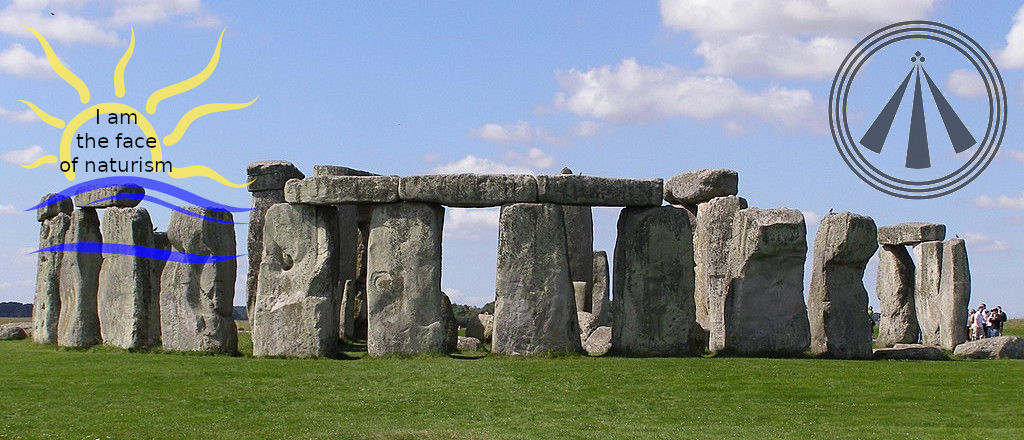
Change we can believe in
From DynamicSpiral:
So, by now you’ve probably heard that we’ve recently crossed a dubious milestone: Earth’s carbon dioxide level has reached 400ppm. That’s the highest it’s been since we started taking measurements—and, as far as we can tell, the last time it was that high, there weren’t any people around to talk about it.
Well, okay, that’s not entirely true. There were people, but they looked more like this:
As you might have grasped from the NatGeo article, this is…kind of a big deal. Right about this point, the folks who’ve been sounding the alarm on climate change for years might be about ready to tear their hair out. Why aren’t we doing more about it? Why aren’t we doing absolutely everything in our power to try to reverse the damage we humans are doing to the climate?
The short answer—the easy answer—is that there are too many climate-change deniers. And while that’s definitely true, there’s a bigger ideological issue here.
As you may have heard, we have a bit of a problem here in the U.S. involving the intersection of science and religion. These two have some trouble getting along, sometimes. For reasons that I’ll leave to the religion scholars, our country has become a stronghold for a particularly virulent strain of fingers-in-ears, head-in-sand Biblical literalism that is so anti-science it’s frankly terrifying. You may be familiar with the anti-evolution, Young Earth Creationist nonsense that gets spouted by these folks, but there’s another branch of Christian thought that isn’t anti-science so much as anti-Earth.
At a recent evangelical Christian conference, Seattle pastor Mark Driscoll is reported to have said during a talk, ”I know who made the environment. He’s coming back and he’s going to burn it all up. So yes, I drive an SUV.” (You can see liberal Christian publication Sojourner‘s theologically alarmed response here).
Driscoll also made some comments linking SUVs and his concept of masculinity that I’ll leave to his psychoanalyst to unpack—but, for now, back to the topic at hand. Driscoll’s comment, referring to the “End Times” of Biblical prophecy, basically conveys that he sees no point in exerting any effort to protect the environment because it’s all going to end in a fiery cataclysm, anyway.
Just like the good Lord intended.
There is a strain of Christian belief that views the world as fundamentally flawed, “fallen” along with our mythical garden-going progenitors who succumbed to the temptations of forbidden fruit. From within this mindset, the world is inherently corrupt, and slotted for destruction. It’s not worth saving. Which might be why believers in the End Times are less likely to believe we should take action to avert climate change.
Especially if you don’t believe the end is far off. I mean, all those climate-disaster-scenarioweather-pornos films that Hollywood’s cranked out over the years make it look like climate change would kind of suck. But if you’re planning on getting Raptured out of here before ravening wolves take to eating people in Central Park (or whatever happened in that one movie), then what do you care what happens to this planet before it collapses into an unholy hot mess?
Do you remember way back a year ago, when folks were freaking out over the purported end of the Mayan calendar, and a Reuters poll found that 22% of Americans think the world will end in our lifetime? At least 1 in 5 people in this country believes the material universe is currently circling the drain, and that we—as in, the people alive right now—will personally witness its final lap around the cosmic toilet bowl.
When you look at it from their perspective, what’s a few miles per gallon in the not-so-long run?
But this worldview doesn’t just make people indifferent to environmentalism; it is, by logical extension, fundamentally anti-environment.
Christians of this stripe are in the world, not of it. This wicked world belongs to the unwashed masses of unsaved souls who are doomed along with it, and to expend any effort trying to preserve what God has earmarked for righteous destruction is an exercise in both futility and borderline-heretical arrogance. From the perspective of someone who adheres to this belief system, it might even be a sign of one’s faith to actively oppose any perceived pro-environmental causes.
For example: In a recent study, researchers found that self-identified conservatives were significantly less likely to buy an energy-efficient lightbulb if its packaging included a pro-environmental sticker than if it didn’t. Pitching it as something that would save them money on their electricity bill was fine; but as soon as you said the Evil E Word, conservatives checked out.
“He who is not with me is against me,” as they say.
